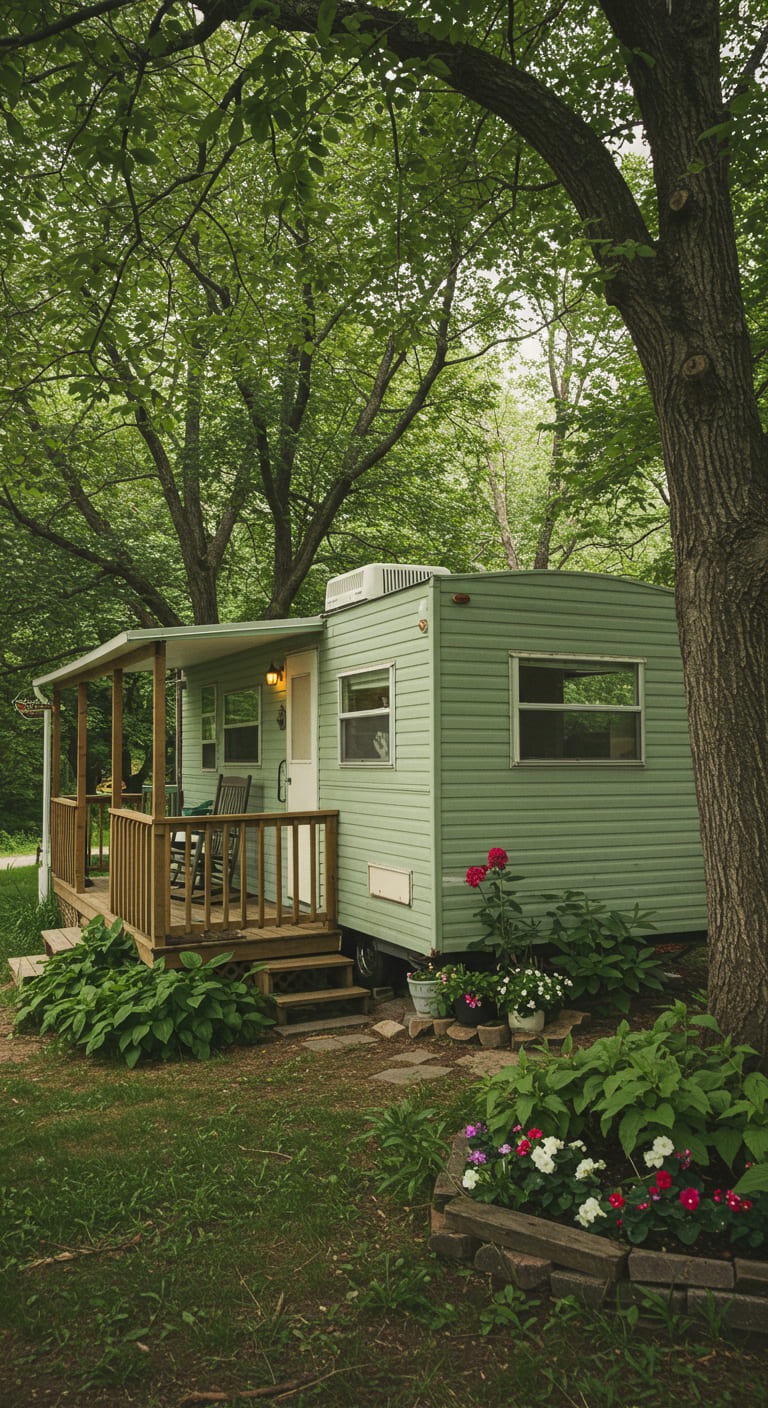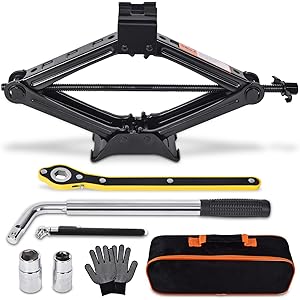When I first encountered the term “trailer homes,” I was intrigued. What did it mean, and how did these unique living spaces come to be? As I delved deeper, I uncovered a rich history and cultural significance that I believe is worth sharing. In this article, I will explore the origins of trailer homes, their evolution, and their place in modern society. Join me as we unpack this fascinating subject!
The Origins of Trailer Homes
To understand why they are called trailer homes, we must first look back at the origins of trailers themselves. The concept of a trailer can be traced back to the early 20th century, around the 1910s, when the first travel trailers were designed for families seeking adventure on the open road. These early models were often towed by cars, allowing families to explore the country while having a portable home at their disposal.
As time progressed, the design and functionality of trailers evolved. By the 1930s, manufacturers began producing more robust models that could accommodate larger families and provide more amenities. The term “trailer home” began to emerge during this period, reflecting the growing trend of using these mobile structures as permanent residences rather than just temporary accommodations.
What Exactly Is a Trailer Home?
Simply put, a trailer home is a type of mobile home that is typically pre-fabricated and designed for transport. Unlike traditional houses, which are constructed on-site, trailer homes are manufactured in a factory and then transported to their intended location. This method of construction allows for greater efficiency and often results in lower costs for homeowners.
Trailer homes can vary significantly in size, style, and amenities. Some are modest one or two-bedroom units, while others are spacious and luxurious, complete with multiple bedrooms, bathrooms, and even high-end finishes. This versatility has contributed to their popularity among various demographics, from young couples to retirees.
The Evolution of Trailer Homes
As I researched the history of trailer homes, I was fascinated to learn how they have evolved over the decades. Here are some key milestones that highlight this transformation:
- 1940s – 1950s: Post-World War II, there was a housing boom in the United States. The demand for affordable housing options soared, leading to an increase in trailer home production. Companies like Airstream and Spartan began crafting iconic aluminum trailers that became synonymous with the American road trip.
- 1960s – 1970s: The mobile home industry experienced significant growth. The introduction of the HUD code in 1976 established safety and quality standards for mobile homes, further legitimizing them as a housing option.
- 1980s – 1990s: The term “trailer home” began to fall out of favor, replaced by “manufactured home” to reflect the improved quality and design of these homes. The stigma surrounding mobile homes began to dissipate.
- 2000s – Present: Today, manufactured homes are viewed as a viable housing solution, particularly for those seeking affordability and mobility. Innovations in design and technology have led to more energy-efficient and aesthetically pleasing models.
The Cultural Significance of Trailer Homes
As I explored the evolution of trailer homes, I couldn’t help but notice their cultural significance. Trailer homes are often associated with a sense of freedom and adventure, embodying the American spirit of exploration. They have also played a crucial role in providing affordable housing options for those in need.
Moreover, trailer homes have become a symbol of community for many people. I discovered that numerous mobile home parks foster close-knit neighborhoods, where residents share experiences, support one another, and create lasting friendships. This communal aspect of trailer living is often overlooked but is a vital part of the trailer home experience.
Why Are They Called Trailer Homes? The Name Explained
The term “trailer home” can be somewhat misleading. While these homes are often towed by vehicles, the modern manufactured homes are typically more permanent than their name suggests. The word “trailer” stems from the practice of towing these homes before they were placed on a permanent foundation.
As I pondered the terminology, I realized that the name can evoke mixed feelings. For some, “trailer home” conjures images of low-income housing or transient lifestyles. However, as I learned more, it became clear that trailer homes have evolved into a legitimate and desirable housing option for many, dispelling outdated stereotypes.
Case Studies: Real-Life Trailer Home Stories
To illustrate the diverse experiences of trailer home residents, I gathered a few real-life stories that highlight the benefits and challenges of living in these unique structures.
The Johnson Family: Embracing Minimalism
The Johnson family, a family of four, decided to downsize from their traditional home to a manufactured home to embrace a minimalist lifestyle. They found a charming three-bedroom trailer home in a welcoming mobile home park. The move allowed them to reduce their expenses significantly and spend more time together as a family. Their story demonstrates how trailer homes can facilitate a more intentional way of living.
Linda: A Retiree’s Dream
Linda, a recent retiree, decided to purchase a trailer home in a scenic area near the beach. She loves the flexibility that comes with her mobile home, allowing her to travel and explore new places while still having a cozy base to return to. Linda’s experience showcases how trailer homes can meet the needs of retirees seeking adventure and community.
The Martinez Family: Overcoming Stigma
The Martinez family faced challenges when they moved into a mobile home park. Initially, they encountered skepticism from friends and family who held onto negative stereotypes surrounding trailer living. However, as they settled in, they found a supportive community and realized that their trailer home was not just a house but a place filled with love and connection. Their journey highlights the importance of challenging societal perceptions.
Statistics: The Growing Popularity of Trailer Homes
The data surrounding trailer homes is compelling. According to the U.S. Census Bureau, approximately 22 million Americans live in manufactured homes, making up about 6.8% of the total housing market. Here are a few more statistics that underscore the growing popularity of trailer homes:
- Manufactured homes are often 30-50% less expensive than traditional site-built homes.
- The average size of manufactured homes has increased over the decades, with many now exceeding 1,500 square feet.
- Manufactured homes are becoming increasingly energy-efficient, with modern designs incorporating sustainable materials and technologies.
Challenges Faced by Trailer Home Residents
While trailer homes offer numerous advantages, they are not without their challenges. It is essential to address the potential drawbacks that residents may face:
- Financing Issues: Obtaining financing for a manufactured home can be more challenging than for traditional homes, often requiring higher interest rates.
- Stigmatization: Despite the progress made, some individuals still hold negative perceptions of trailer homes, leading to discrimination and bias.
- Maintenance Concerns: Trailer homes may require more frequent repairs and maintenance compared to traditional houses, especially if they are not properly cared for.
The Future of Trailer Homes
As I reflect on the history and evolution of trailer homes, I am optimistic about their future. With increasing housing costs and a growing desire for mobility, I believe that manufactured homes will continue to gain traction as a viable housing solution. Innovations in design, sustainability, and community development will further enhance their appeal.
Moreover, as attitudes shift and more people embrace alternative living arrangements, I envision a world where trailer homes are celebrated for their unique contributions to the housing landscape. The stories I’ve shared illustrate that these homes can foster community, promote minimalism, and offer freedom—qualities that many people desire in today’s fast-paced world.
Conclusion: Embracing the Trailer Home Lifestyle
In conclusion, the term “trailer home” reflects a rich history and cultural significance that extends beyond mere nomenclature. These homes have evolved from simple travel accommodations to legitimate and desirable housing options that cater to a diverse range of individuals and families. By embracing the trailer home lifestyle, we can challenge stereotypes and foster a greater understanding of the unique benefits they offer.
I encourage you to share your thoughts and experiences with trailer homes in the comments below. Have you lived in a trailer home, or do you know someone who has? Your insights can help foster a deeper conversation about this fascinating topic. Don’t forget to sign up for our newsletter to stay updated on future articles, and share this with your friends on social media!
FAQ
1. What is the difference between a trailer home and a mobile home?
A trailer home typically refers to older models that are towed behind vehicles, while mobile homes are a broader term that encompasses various types of manufactured homes, including those built after the HUD code was established in 1976.
2. Are trailer homes a good investment?
Trailer homes can be a good investment, especially in areas where housing costs are high. They often provide affordable housing options and can appreciate in value over time.
3. Can trailer homes be permanently placed on a foundation?
Yes, many trailer homes can be placed on a permanent foundation, which can enhance their value and make them eligible for traditional financing options.
4. How do I find a good mobile home park?
Research online reviews, visit parks in person, and talk to current residents to find a mobile home park that fits your needs and lifestyle.
Car Jack Kit Scissor Jack for Car 2 Ton (4409 lbs) Tire Jack Tool Kit Universal Car Emergency Kit with Lug Wrench Tire Changing Kit for Car SUV (2T)
$35.99 (as of November 15, 2025 07:52 GMT -03:00 - More infoProduct prices and availability are accurate as of the date/time indicated and are subject to change. Any price and availability information displayed on [relevant Amazon Site(s), as applicable] at the time of purchase will apply to the purchase of this product.)
Sign up for our newsletter and stay up to date with exclusive news
that can transform your routine!





